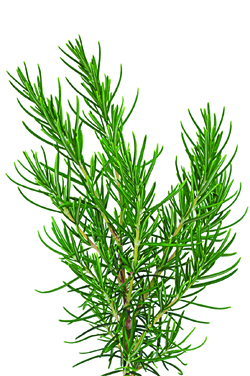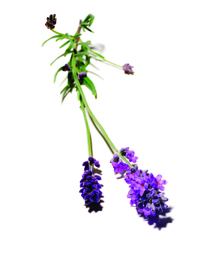
This morning on the dragon coast of Northern California I smell winter in the cold bowels of the earth. Broken-necked zinnias rot on moldy stems while our prize Atlantic Giant pumpkin suffered its first hungry-rat attack last night at sundown. In the thrust of this harvest season, 100 eager young meditators and I are preparing to plant a memorial apple tree for the Kenyan environmentalist and peace activist Dr. Wangari Maathai, who died of ovarian cancer in late September in Nairobi. She was 71. In 2004, Dr. Maathai was awarded the Nobel Peace Prize for her lifelong commitment to environmental sustainability and the empowerment of women. Under her determined leadership more than 30 million trees have been planted across rural Africa by the Green Belt Movement, Dr. Maathai’s grassroots organization, which has trained some 900,000 women over the last three decades to work on behalf of social and economic justice, nonviolence, and earth democracy.
Now it is our turn to plant for Wangari Maathai, our modern-day bodhisattva. During the annual Family Day of Mindfulness, to be held in a few weeks at nearby Spirit Rock Meditation Center, we will dedicate an herbal arc of rosemary and lavender plants to grow near the memorial apple tree. Zen practice discourages overt glorification of the things of the world that Wangari Maathai ministered to with diamonds-ceptered presence and persistence. Still, offering homage and gratitude to certain Lavender for comfort, rosemary for strength totemic plants like rosemary and lavender may serve as an extension of awareness practice. These two powerful herbs of antiquity evoke and express the dual qualities fundamental to effective meditation and engaged practice: deep-rooted wisdom and wide-reaching compassion.
In the autumn of 1983, when we established the original hand-worked organic gardens at Green Gulch Farm Zen Center, we planted both sides of the road that bisected the garden with dramatic full-length borders of intensely fragrant English lavender. At the back edge of the garden, tall and upright blue-flowering rosemary plants were set out. I still remember our British garden mentor, Alan Chadwick, extolling

the merit of these cherished herbs. “Lavender for comfort, rosemary for strength,” he would intone, running his large bony hand over the noble plants whenever he was in their presence.
With royal Shakespearean aplomb Alan recited a narrative tribute to rosemary and lavender drawn from his mystical Christian roots. In portentous timbre he reminded us that the first humans in the Garden of Eden were watched over and guided by the stars until they began to rely too strongly on reason and intellect. Then two stars descended to earth to guide Adam and Eve just as they were being driven out of Paradise. The first star raised a medallion and said, “I represent the King of Fishes, and I am Strength,” while the other raised a medallion and announced, “I am the Queen of Crops, and I represent Comfort.” Assuming the physical form of two classic herbs, rosemary for strength and lavender for comfort, these stars accompanied Adam and Eve on their journey beyond the gates of Eden, into the unknown world outside the garden.
Rosemary, poetically named “Dew of the Sea,” has long been associated in ancient medicine, folklore, and literature with the faculty of memory and the life of the mind. Rosemary is the herbal emblem of fidelity for lovers. In Act 4 of Hamlet Ophelia holds up a sprig of the herb to proclaim, “There’s rosemary, that’s for remembrance; pray you, love, remember.” For centuries rosemary has been used as incense at weddings and funerals. Its pungent fragrance is believed to summon the memory and presence of the living and the dead. An Old French name for the herb is incensier. Other names that honor the regal and stabilizing qualities of rosemary are Coronarium and Compass or Polar Plant.
Long associated with strength and human health, rosemary was considered by astrologers to be under the dominion of the sun and was often used in sick chambers to purify the air and prevent infection. It has been employed also as a culinary additive to prevent contamination in food. Oil of rosemary carries a strong camphor-and-balsam scent; applied externally, it has a warming effect, serving as an excellent astringent and a fine remedy for headaches. When rubbed vigorously into the scalp, rosemary also has the capacity to stimulate hair growth and prevent premature baldness.
Balancing the fiery strength of rosemary is its fragrant cooling partner, lavender, known primarily for its calming properties. These two plants have been cultivated in tandem for generations, rosemary to stimulate strength of mind, lavender to soothe and comfort an agitated nervous system while quieting the bloodstream and promoting sleep.
The name lavender is thought to be derived from the Latin lavare, “to wash.” Throughout the history of herbal medicine its fragrance has revived and comforted countless beings. The herb has been included in the British pharmacopeia for more than two centuries and is recognized by herbalists and naturopaths worldwide as having both stimulating and carminative properties. Oil of lavender has a sedative or calming effect on the heart, lowering elevated blood pressure, while also stimulating limbs and restoring stiff joints to suppleness.
In the Buddhist and African traditions alike, plants are a living expression of peace and awareness. They are also powerful beyond human cognition or religious reckoning. In this season seven years ago, when Wangari Maathai won the Nobel Peace Prize, she celebrated by planting a single Nandi flame tree at the base of Mount Kenya. “We are called to assist the Earth to heal her wounds,” she stated simply, entrusting the flame tree to African soil. In this shared work, may the unbowed ground of wisdom and compassion give rise to plants that nourish strength and comfort for our times.
Thank you for subscribing to Tricycle! As a nonprofit, we depend on readers like you to keep Buddhist teachings and practices widely available.